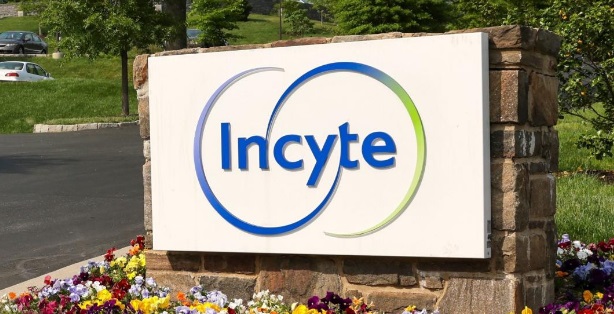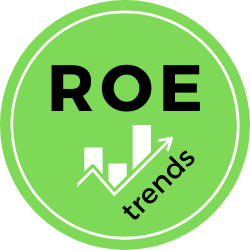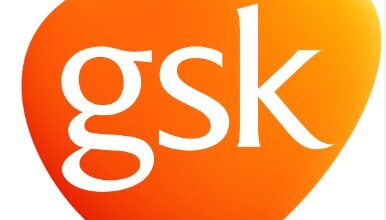incyte stock analysis

Incyte Corporation (INCY) is a prominent global biopharmaceutical company that specializes in discovering, developing, and commercializing proprietary therapeutics aimed at addressing serious unmet medical needs. With a robust focus on oncology, as well as inflammation and autoimmunity, Incyte has successfully brought several innovative treatments to market. However, the company faces challenges, including increasing competition in its key therapeutic areas and the need to diversify its product portfolio. This article provides an in-depth Incyte stock analysis, examining the company’s Return on Equity (ROE) over recent years, its growth strategy, strengths, weaknesses, and the competitive landscape within the dynamic biopharmaceutical industry.
Understanding ROE: Why It Matters for Incyte Investors
Return on Equity (ROE) is a critical financial metric that measures a company’s profitability relative to shareholders’ equity. A higher ROE typically indicates better financial performance and stronger returns for investors holding INCY stock. For investors looking at Incyte stock analysis, understanding ROE is vital for assessing the company’s profitability and potential for growth.
Incyte’s ROE: A History of Volatility and Growth
| Year | ROE (%) |
|---|---|
| 2013 | 15.6 |
| 2014 | 18.9 |
| 2015 | 22.3 |
| 2016 | 19.7 |
| 2017 | 17.2 |
| 2018 | 14.5 |
| 2019 | 12.8 |
| 2020 | 15.1 |
| 2021 | 18.6 |
| 2022 | 16.3 |
| 2023 | 17.5 |
| 2024 | 19.0 |
Incyte has demonstrated a track record of financial performance that reflects both the challenges and opportunities inherent in the biopharmaceutical industry. Its ROE over the past decade has shown periods of growth and volatility, as illustrated in the table above.
Key Trends in ROE Analysis:
- Fluctuating Profitability: Incyte’s ROE has varied over the years, reflecting the dynamic nature of the biopharmaceutical industry and the impacts of factors such as drug development cycles, competition, and patent expirations.
- Early Growth: The early part of the decade saw an upward trend in ROE, driven by the successful launch of Jakafi, Incyte’s first commercial product.
- Recent Moderation: In recent years, the ROE has moderated, potentially due to increased competition, substantial investment in new drug development, and the need for portfolio diversification.
- Projected Growth: The projected ROE for 2024 suggests a potential increase, indicating that Incyte’s strategic initiatives and new product launches may contribute to improved profitability in the near future.
Investors should consider this ROE data alongside other financial metrics and qualitative factors, such as the company’s growth prospects, pipeline of new drugs, and competitive positioning, to make informed investment decisions.
Understanding Incyte: A Focus on Oncology and Inflammation
To thoroughly assess Incyte’s investment potential, it is essential to examine its strategic direction, strengths, weaknesses, and the competitive landscape.
Incyte’s Mission:
“To find solutions for serious unmet medical needs through the discovery, development, and commercialization of proprietary therapeutics.”
Incyte is committed to leveraging its expertise in small molecule drug discovery to develop innovative therapies that enhance the lives of patients suffering from serious diseases. This commitment includes a strong focus on:
- Oncology: Developing and commercializing new treatments for various types of cancer, including hematological malignancies and solid tumors. This encompasses targeted therapies and immunotherapies.
- Inflammation & Autoimmunity: Creating therapies for inflammatory and autoimmune diseases, such as atopic dermatitis and graft-versus-host disease (GvHD). This includes collaborations, like the one with Eli Lilly and Company on Olumiant, a treatment for atopic dermatitis.
- Innovation and R&D: Investing heavily in research and development to discover and develop new treatments that address unmet medical needs.
- Global Reach: Expanding access to its medicines globally through partnerships and strategic collaborations.
Strengths:
- Jakafi Franchise: Incyte’s flagship drug, Jakafi, is approved for treating myelofibrosis and polycythemia vera, generating significant revenue and establishing a strong presence in the hematology-oncology market.
- Strong R&D Capabilities: Incyte boasts a solid track record of innovation in small molecule drug discovery, focusing on targeted therapies and a deep understanding of disease pathways.
- Strategic Partnerships: The company has forged strategic partnerships with Novartis and other pharmaceutical firms to co-develop and commercialize its drugs, leveraging additional resources and expertise to broaden market reach.
- Growing Pipeline: Incyte possesses a promising pipeline of drug candidates in various development stages, targeting a range of cancers and inflammatory diseases, which could drive future growth and diversify its revenue streams.
Weaknesses:
- Dependence on Jakafi: While Incyte is working to diversify its portfolio, its financial performance still heavily relies on Jakafi. Any setbacks related to this drug—such as increased competition or patent challenges—could significantly impact revenue.
- Competition: The biopharmaceutical industry is highly competitive, with numerous companies vying for market share in oncology and inflammation. Incyte faces competition from both large pharmaceutical companies and smaller biotech firms that offer innovative therapies.
- Patent Expirations: The company faces challenges associated with patent expirations for its key products, which can lead to increased competition from generics and erosion of market share and revenue.
- Clinical Trial Risks: The success of Incyte’s pipeline candidates depends on favorable clinical trial results, which can be unpredictable and carry inherent risks. Delays or setbacks in clinical trials could adversely affect the company’s growth prospects.
Incyte’s Competitors: The Biopharmaceutical Landscape
Incyte operates in a competitive global biopharmaceutical market that includes several major players:
- Novartis: A global healthcare company with a strong focus on oncology, immunology, and other therapeutic areas, and a key partner for Incyte in the development and commercialization of Jakafi.
- Bristol Myers Squibb: A biopharmaceutical company concentrating on oncology, hematology, immunology, and cardiovascular disease, posing significant competition in the oncology space with a robust portfolio of cancer therapies.
- Pfizer: A leading pharmaceutical company known for innovative medicines and vaccines, with a broad portfolio across various therapeutic areas, including oncology and inflammation.
- Gilead Sciences: A biopharmaceutical firm with a strong presence in antiviral therapies and oncology, expanding its foothold in the oncology market with new drug launches and acquisitions.
- AbbVie: A biopharmaceutical company focused on immunology, oncology, and virology, with a solid presence in immunology and ongoing development of new therapies for inflammatory diseases.
Incyte’s Key Projects:
- Jakafi: Incyte’s flagship drug for myelofibrosis and polycythemia vera, a JAK inhibitor that has achieved significant success in the hematology-oncology market.
- Olumiant: A treatment for atopic dermatitis developed in collaboration with Eli Lilly and Company, competing with other drugs in the immunology space as a JAK inhibitor.
- Monalizumab: An investigational antibody for various cancers, developed in partnership with MacroGenics, with the potential to enhance Incyte’s oncology portfolio.
- Parsaclisib: A potential new treatment for blood cancers currently in clinical trials, addressing unmet needs in this therapeutic area.
- Ruxolitinib Cream: A topical formulation of ruxolitinib (the active ingredient in Jakafi) for treating vitiligo, a skin condition that causes pigmentation loss.
Incyte’s Future: Overcoming Challenges and Pursuing Growth
Incyte’s future hinges on its ability to diversify its portfolio, navigate patent expirations, and continue innovating in key therapeutic areas. Essential factors influencing its success include:
- R&D Productivity: The company’s capacity to discover and develop new, effective treatments will be crucial for long-term growth, especially as its key products face increasing competition.
- Commercial Success: Effectively launching and marketing new drugs will be vital for generating revenue and maintaining profitability, requiring strategies to differentiate its offerings in a crowded market.
- Competitive Landscape: Incyte must compete effectively with other biopharmaceutical companies in a dynamic environment, leveraging its R&D capabilities and strategic partnerships to maintain its market position.
Is Incyte (INCY) Stock a Good Investment?
Incyte is a biopharmaceutical company with a solid track record of innovation, focusing on oncology and inflammation. The company has a successful flagship drug, Jakafi, and a promising pipeline of therapies. However, potential investors should carefully consider the risks associated with competition, patent expirations, and the need for continued innovation when conducting an Incyte stock analysis.





